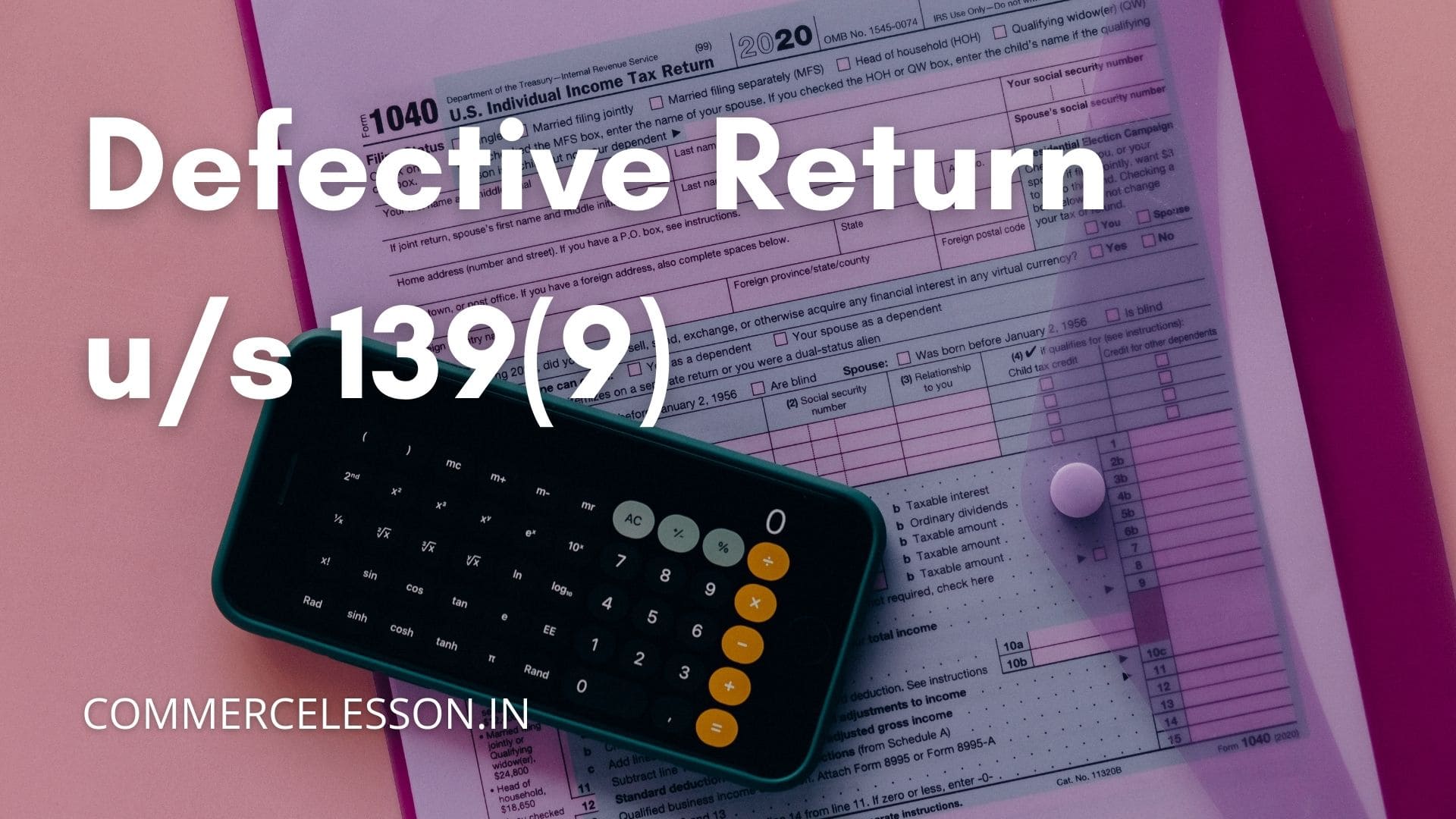In this article, we will discuss Defective Return u/s 139(9) i.e. when a return is said to be defective of the Income Tax Act, 1961.
Defective Return [Sec. 139(9)]
When a return is said to be defective – A return of income is termed as defective when the following conditions are not fulfilled:
- When the return is furnished but the self-assessment tax is not paid together with interest, if any.
- When the statements, annexure, and columns in the return of income is properly filled in.
- When the return is accompanied by the following documents –
a. a statement that shows the computation of tax liability;
b. the audit report u/s 44AB (where the report is submitted prior to the furnishing of return, a copy of audit report along with proof of furnishing the report);
c. the proof of advance tax paid, tax paid on self-assessment and tax deducted or collected at source,;
d. where the assessee maintains regular books of account:
- i. copies of Manufacturing A/c, Trading A/c, Profit and Loss A/c or Income and Expenditure A/c or any income statement and Balance Sheet;
- ii. in the case of –
- A proprietary business or profession – Proprietor’s personal A/c;
- A firm, AOP or BOI – Partners’ or Members’ personal A/c; or
- A partner or member of the firm, AOP or BOI – Partners’ or Members’ personal A/c in the firm, association of persons or body of individuals;
Read Also:
Short Note on:
Entertainment allowance u/s 16 (ii)
Bond washing transactions
e. where the assessee does not maintain regular books of account:
- A statement that indicates the amount of total sales, direct and indirect expenses, gross profit and net profit of the business or profession and the basis which is used to compute such amount; and
- The amount of sundry creditors, sundry debtors, stock and cash balance as at the end of the previous year.
f. where the accounts of the assessee have been audited, copies of the audited financial statements i.e., Profit and Loss A/c, Balance Sheet and a copy of the Auditor’s report;
g. Cost audit report u/s 233B of the Companies Act (if any).
Time limit for rectification: The assessee must rectify the error within 15 days from the date of intimation or within such extended time as allowed by the Assessing Officer. Where the taxpayer rectifies the defect after an expiry period of 15 days or such extended period but before the assessment is completed, the Assessing Officer can forgive such delay.
Consequence if defect is not rectified: When defect is not rectified within the specified time limit, the Assessing Officer will treat the return as an invalid return. Thus, the provisions of the Act will function as if the taxpayer has failed to furnish the return.
Liked our post?
We are available with lots and lots of commerce related contents.





[…] Defective Return [Sec. 139(9)] […]
[…] Defective Return [Sec. 139(9)] […]